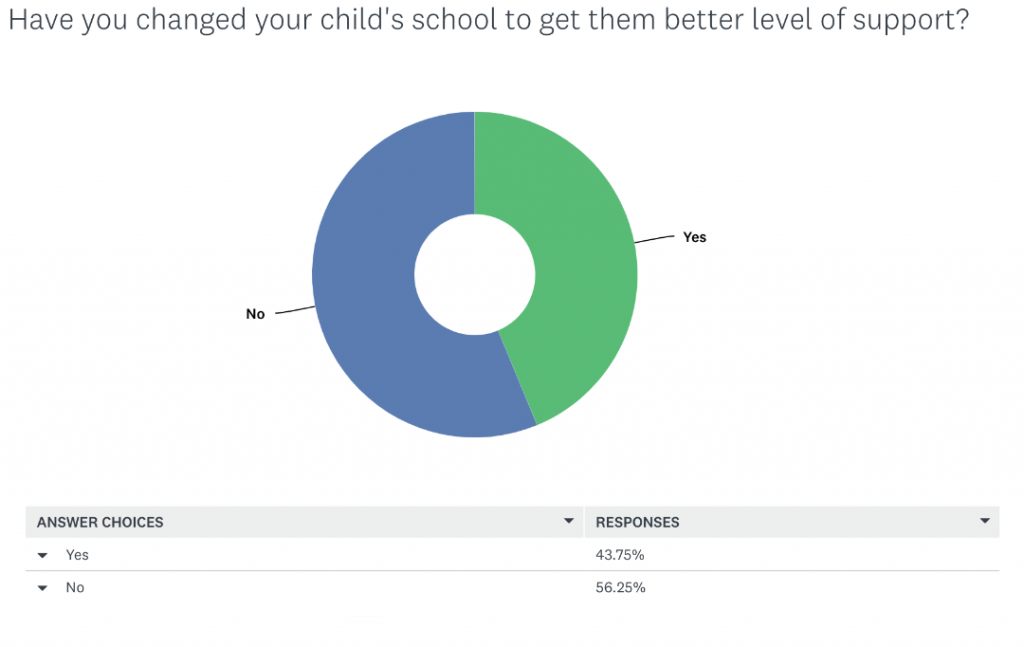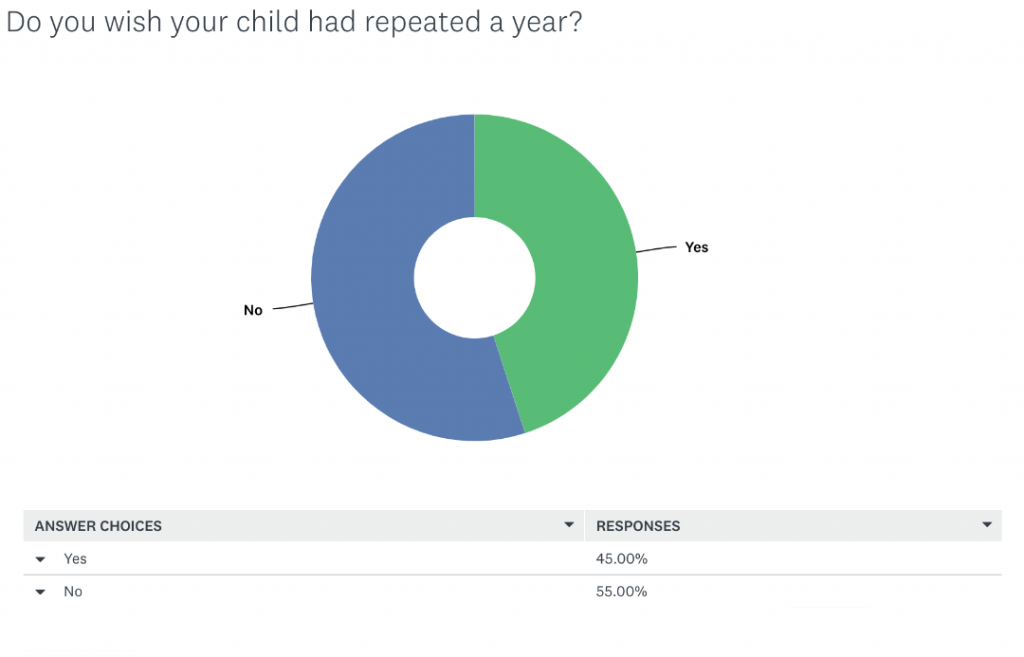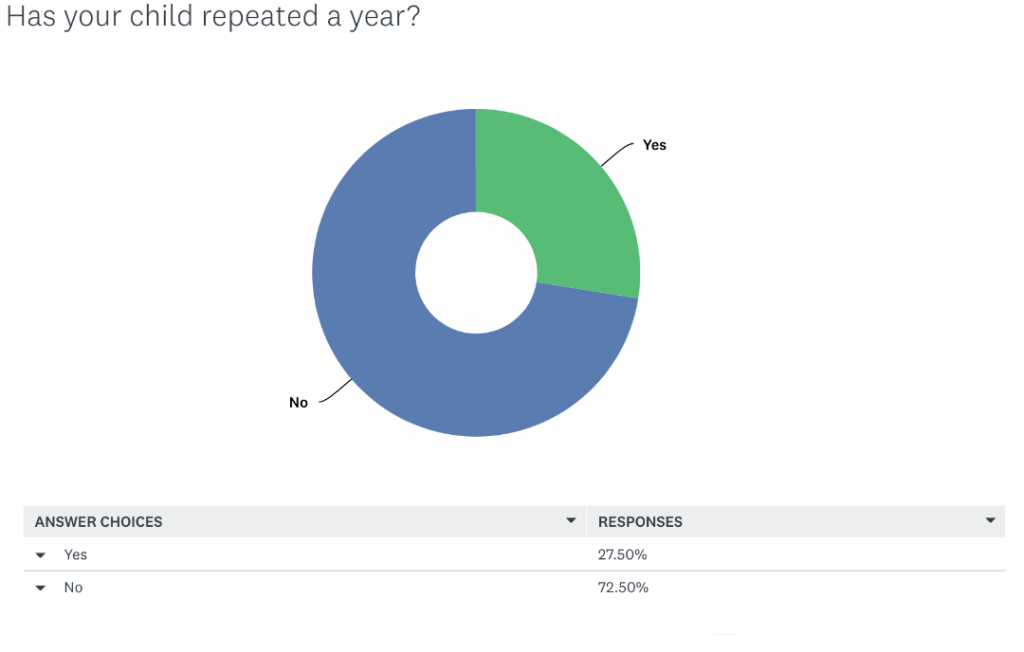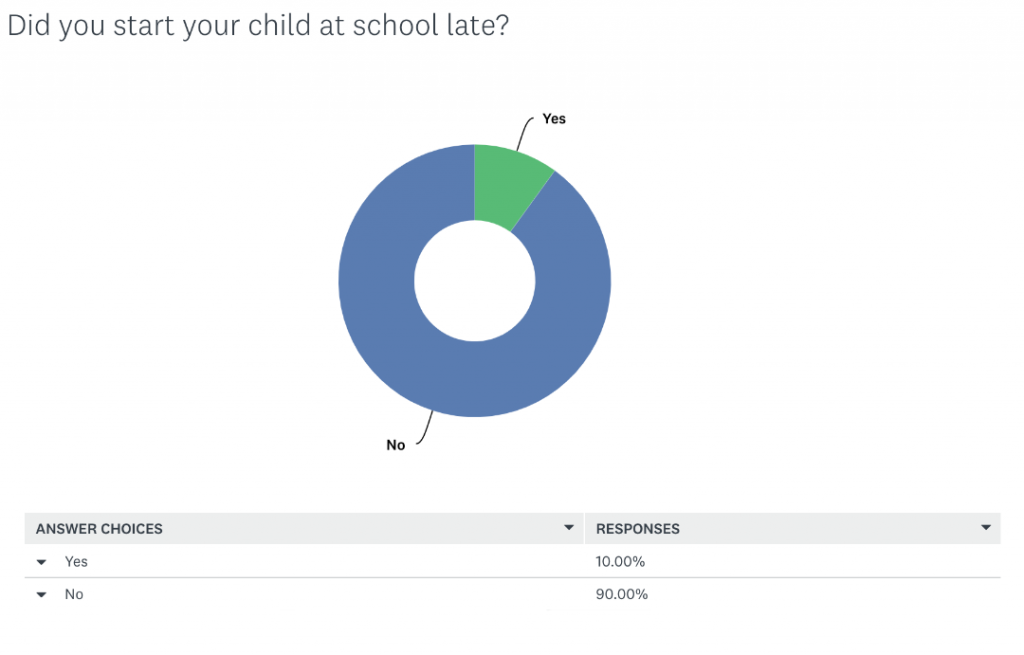Thank you to all the people who responded to the 4 questions I asked, about their children changing schools and repeating a year. These responses help me and my team understand your personal experiences surrounding your child repeating a school year or changing schools to access better levels of support.

They also help other parents to see what is going on for other families in our Dyslexia Daily community.
While changing schools can be difficult for children, it is sometimes necessary if you feel you have exhausted all avenues at your child’s current school. Some schools may also have better support services or specialised teachers that can provide additional help for your child if they need it.
Making the move to change schools is usually a last resort, however, it seems from the results that a large number of you have done exactly that. Of all the responses we received 43.75% said that their child had changed schools to get a better level of support.
When it comes to whether parents wished their child had repeated a year, it is surprising to see a similar result with 45% saying, Yes.
In retrospect, it becomes clearer for many of us whether an extra year at a particular grade level may have been beneficial for our children or not. Wouldn’t it be wonderful to have a glass ball to see into the future? Unfortunately, they haven’t created a time machine as yet, so we do what think is the right thing at the time.

What is interesting though, is when we look at how many children did repeat a year at school. While there were 45% of respondents who said they wished their child had repeated a year, there was only 27.5% whose child actually did.

The last question we asked was about whether your child started school late. Children can begin school as early as 4 years old or as late as 6 years and this may vary even further depending on your country, region or state. A staggering 90% of people said their child did not start school late. Since children mature at different rates delaying the time a child starts school can sometimes allow a less mature child time to reach the same maturity level as their peers. Some people commented that their child was already the oldest in their class.
School is not just about the academic achievement; social interaction, networks and maturity levels should play an important part in deciding if a child is ready for school or not. A happy, confident child is in the best position to learn.

Thanks again to everyone who answered these 4 simple questions. I hope you found these results useful. If you would like to know more you can Watch the Video I did on this topic or get the book Helping Children with Dyslexia, which has a whole chapter on this and much more. Go Here.




















HI Liz
I didn’t weigh in when you asked the original question, but have you seen John Hattie’s Visible Learning research? In general, it is not helpful. I’m sure there are cases where it does help, but overall it is not a good strategy.
I have heard about his research Sue and it was mentioned at the Learning Difference Convention last year, so thanks for the reminder. I will search it up and have a read. I agree with you; repeating can cause a great deal of angst for students who feel left behind.
There are a huge number of factors to determine whether repetition is the best path to follow. The school leadership team together with the guidance officer, classroom teacher & parents should be involved. This problem often occurs at the end pf Prep & Year 1 but not exclusively.
Hi Dianne, It is good to hear that your school has such a comprehensive approach to it all. Earlier is always better in my view, when taking children’s psychological welfare into account, unless the child is changing schools.